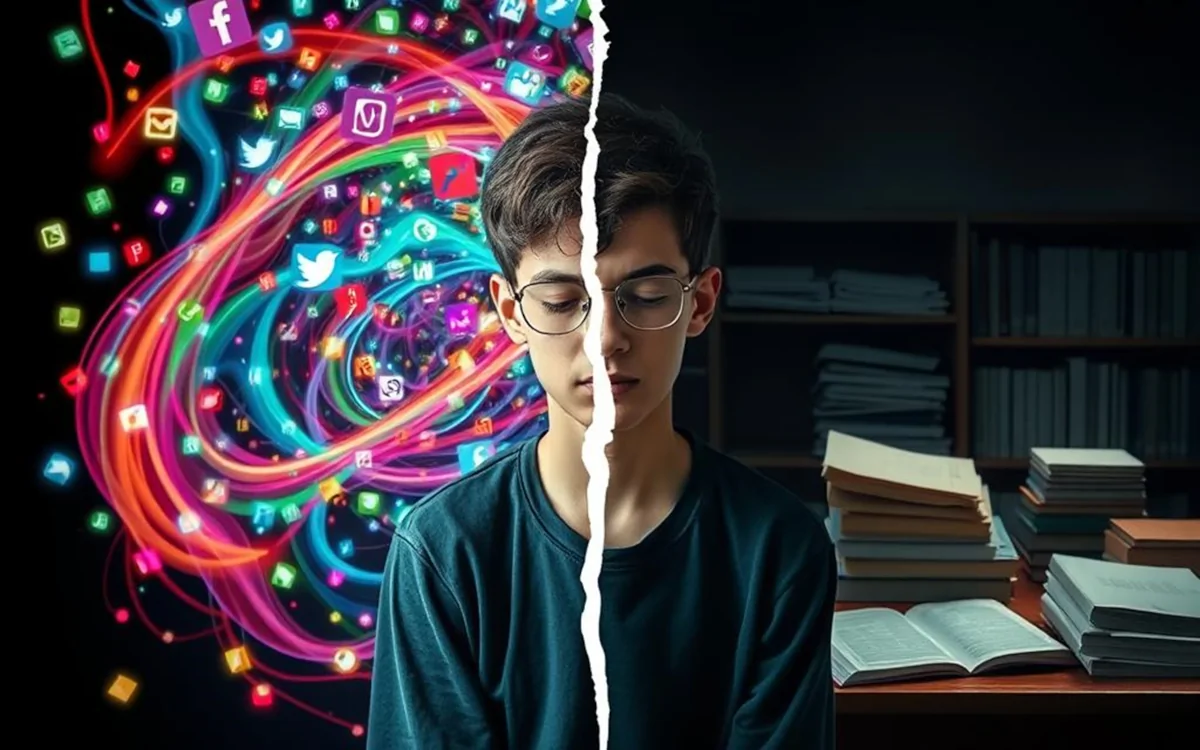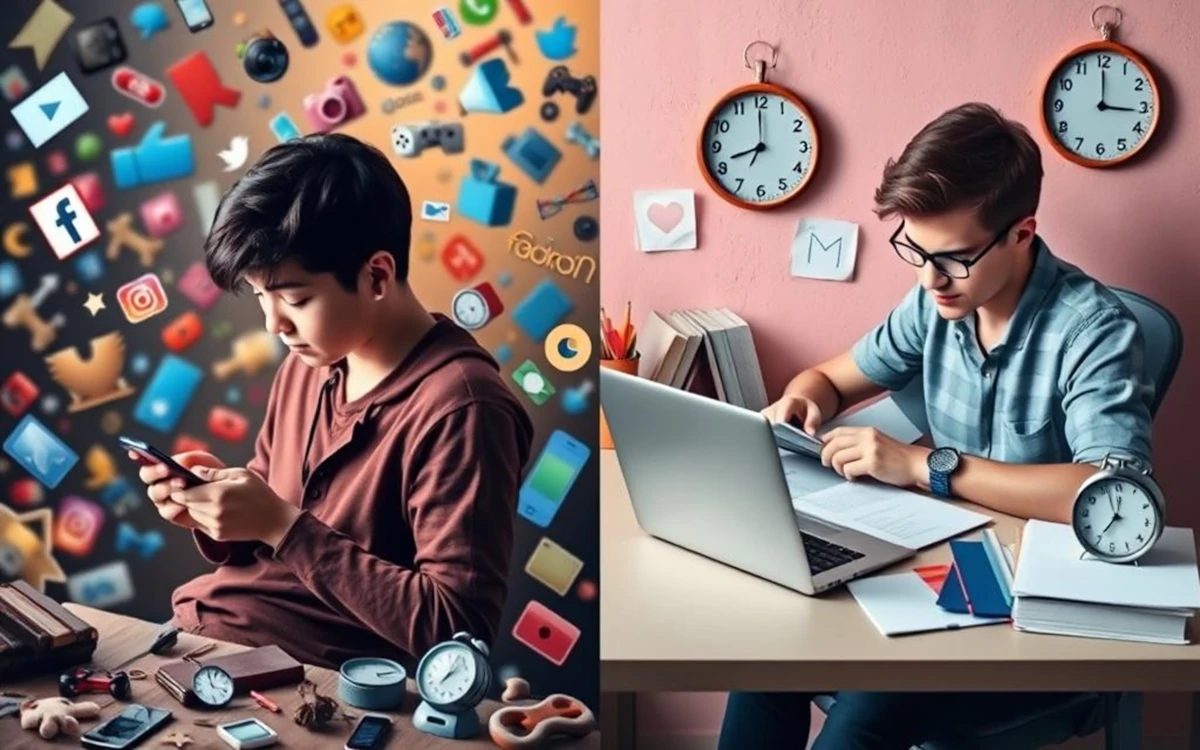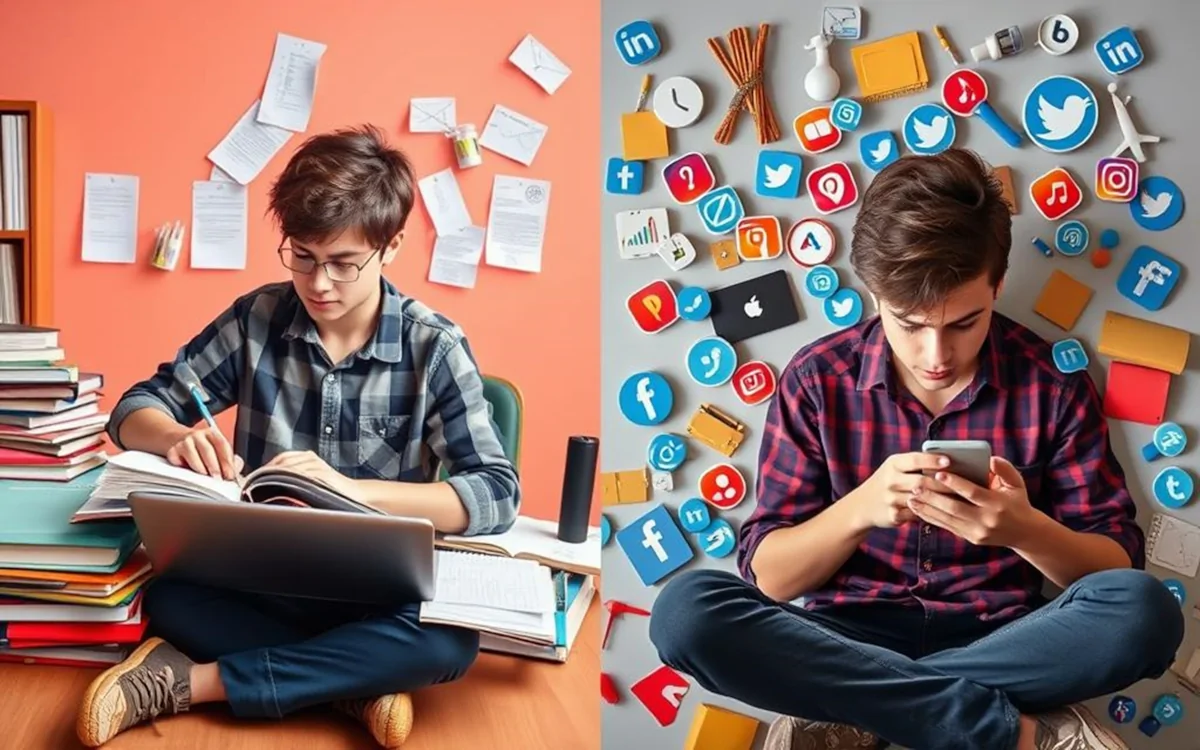
Social media has become a big part of our lives. We use it to connect with friends, share photos, and stay updated on what's happening around the world. But have you ever wondered how spending time on social media affects students' schoolwork? This topic is very important because understanding this can help students, parents, and teachers make better choices about how much time to spend online. In this blog post, we'll explore how social media affects students' academic performance.
The Good Side of Social Media
Social media isn't all bad! It can be a great way for students to stay connected with friends and family, especially if they live far away. It can also be a useful tool for learning. For example, students can join online study groups, share notes, and even watch educational videos. Some teachers use social media to post homework assignments and class updates, making it easier for students to stay organized.
One study from the University of Minnesota found that high school students who used social media for educational purposes showed improved grades and engagement in school. Another research from Pearson Learning Solutions suggested that social media platforms like Facebook and Twitter could be used to foster better collaboration among students. By participating in online study groups, students can access valuable resources that enhance their learning experience.
Additionally, social media can help students develop digital literacy skills. In today's digital age, being able to navigate online platforms is crucial. Students who use social media are often more comfortable with technology and can develop skills that will be useful in the workforce. For example, platforms like LinkedIn can help students understand professional networking and provide job-related resources.
The Bad Side of Social Media

However, spending too much time on social media can have negative effects on students' academic performance. Here are some ways it can impact their schoolwork:
1. Distraction: Social media can be very distracting. When students are trying to study or do homework, notifications from social media can pull their attention away. This can make it harder for them to focus and complete their work on time. According to a study from the University of Maryland, students who frequently checked their social media accounts during study hours had significantly lower GPA scores.
2. Sleep Problems: Using social media late at night can interfere with sleep. When students don't get enough sleep, they can feel tired and unfocused during the day, which can hurt their ability to learn and perform well in school. The National Sleep Foundation found that teens who used social media before bedtime had shorter sleep durations and poorer sleep quality. This lack of sleep can lead to problems with concentration, memory, and overall academic performance.
3. Addiction: Social media can be addictive. Some students might spend hours scrolling through their feeds instead of studying. This can lead to lower grades and less time spent on schoolwork. Research conducted by the University of Ghana revealed that students who were addicted to social media had significantly lower grades than those who weren't. Addiction to social media can also lead to procrastination, where students put off important tasks in favor of spending time online.
4. Comparison and Stress: Seeing other people's posts about their achievements and perfect lives can make students feel bad about themselves. This can lead to stress and anxiety, which can also affect their academic performance. According to a study by the American Psychological Association, social media-induced anxiety and depression can lead to poor academic outcomes. Students who feel stressed or anxious may have trouble concentrating in class, leading to lower grades.
Psychological Impacts of Social Media
Social media’s impact on mental health can indirectly influence academic performance. Students often compare themselves to others on social media, leading to "social comparison." This comparison can cause feelings of inadequacy, self-doubt, or jealousy, which are detrimental to mental well-being and focus. Over time, the stress caused by social media can lead to burnout, making students feel overwhelmed by both their social and academic obligations. A survey by Common Sense Media reported that 29% of teens felt that social media often made them feel anxious, and anxiety has been linked to lower academic performance.
Research Findings on Social Media and Academic Performance
Several studies have looked into how social media affects students' academic performance. A study from the University of Delaware found that middle school students who used social media more often had lower grades. Another study from the National Institutes of Health highlighted that excessive social media use was linked to lower self-esteem and academic motivation.
Additionally, a survey conducted by Common Sense Media found that 50% of teens felt addicted to their mobile devices, which often led to negative impacts on their schoolwork. According to the study, students who spent more than three hours per day on social media were more likely to report poor academic performance.
Social media can also lead to poor reading habits. Unlike traditional books or scholarly articles, social media encourages “skimming” rather than in-depth reading. This habit can hinder students' ability to analyze and process information effectively, affecting their academic performance in subjects that require critical thinking and comprehension.
Tips for Balancing Social Media and Schoolwork

So, how can students balance their social media use and schoolwork? Here are some tips:
Set Time Limits
Students can set specific times for using social media and stick to them. For example, they can decide to only check their social media accounts after they finish their homework. By creating designated times for social media use, students can avoid the temptation to check their accounts while studying.
Turn Off Notifications
Turning off notifications can help reduce distractions. Students can check their social media accounts during breaks instead of constantly being interrupted by notifications. By minimizing distractions, students can focus better on their schoolwork and complete tasks more efficiently.
Create a Study Schedule
Having a study schedule can help students stay organized and make sure they have enough time for both schoolwork and social media. A well-structured schedule can include specific times for studying, breaks, and social media use. This way, students can ensure they are dedicating enough time to their academic responsibilities.
Use Social Media for Learning
Students can use social media to join study groups, share notes, and watch educational videos. This way, they can make social media a part of their learning process. By using social media for educational purposes, students can turn their time online into a productive activity that enhances their academic performance.
Take Digital Detox Breaks
It's important for students to take breaks from social media to recharge and focus on other activities. Digital detox breaks can help reduce dependency on social media and improve overall well-being. During these breaks, students can engage in hobbies, physical activities, or spend time with family and friends.
Practice Mindful Usage: Mindfulness practices, like paying attention to the time spent online, can help students become more aware of their habits. This approach enables them to make conscious choices about social media use instead of scrolling out of habit.
Encourage Face-to-Face Interaction: Social media is great for virtual connections, but real-life interactions are also important for emotional well-being. Spending quality time with family and friends offline can help reduce social media dependence, allowing students to focus better on academics.
Conclusion
In conclusion, social media can be both a helpful tool and a distraction for students. By being aware of how much time they spend online and making smart choices, students can use social media in a way that supports their academic success. Understanding how social media affects students' academic performance is crucial for making informed decisions about technology use. It's all about finding the right balance!
While social media has the potential to enhance learning and communication, it can also lead to distractions, sleep problems, addiction, and stress. By setting time limits, turning off notifications, creating study schedules, using social media for learning, and taking digital detox breaks, students can find a healthy balance between their online activities and academic responsibilities.